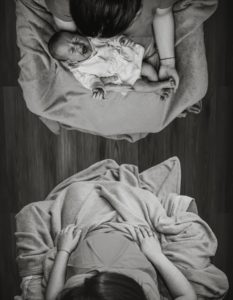
Childfree Women Are Still Subjected to Stigma
How many of us have been conditioned to believe that life’s natural progression will lead us to the creation of our own nuclear family?
Having children is not the ideal choice for many, a situation sometimes referred to as being “childfree.” Ellen Walker, a clinical psychologist and childfree author, shares what is meant by the term in an interview with the Trauma & Mental Health Report (TMHR):
“Childfree simply reflects having peace of mind about not having children. I view those who wanted to have kids but were unable to do so as childless; this reflects their sadness.”
Although the discourse surrounding those who have chosen not to have children has been changing, the term “childfree” represents the validity and agency behind one’s choice. Using inclusive language is necessary, as many people, particularly women, face stigma for living a childfree life. Walker explains that childfree women are sometimes unfairly characterized as “selfish, cold and non-nurturing.”

The choice to be childfree is often a positive one for many women. Debra Mollen, a professor and researcher of childfree women who is also childfree herself, notes:
“Research has shown that women without children are generally happier, healthier, less depressed, less anxious, and more satisfied than mothers. Relationship satisfaction between parents typically plummets after the birth of their first child, not rebounding until after the last child has left home, so not having children can result in happier marriages and greater romantic relationship satisfaction. Women without children also have more resources, time, and energy to devote to other activities that fulfill them.”
There can also be challenges that come with being childfree. Walker notes that as she gets older, they are becoming more apparent to her personally:
“Childfree adults do not have grown children to be there as we age, and we don’t have grandchildren to enjoy. There is also the responsibility of deciding what will happen to your estate.”
Walker explains why the choice to be childfree is gaining popularity in recent years, attributing it to the “environment, cost, the realization that you really can’t do it all and the fact that we all must choose the life path which fits our priorities.” Mollen adds that despite the influx of childfree women, “the mandate to have children remains strong and the resources needed to exercise the right not to have children (like access to safe, affordable birth control, and abortion) can be hard to access, especially for poor, rural, younger, and sexual minority women.”
Why do we still view childfree women as “abnormal” if choosing to be childfree is becoming an increasingly viable choice? Mollen explains:
“Women who occupy traditional roles as mothers and primary parents support patriarchal structures that largely benefit men, who can then focus on their other roles, particularly work and career. People who question and subvert traditional gender roles, especially women who reject the role of parent, are often perceived as threatening. Some studies have found that people view childfree women with moral outrage and interestingly, some also envy childfree people.”
It can be helpful to have a frame of reference to ensure we are supporting rather than invalidating the experiences of childfree women. Walker suggests:
“You might ask what opportunities not having children has opened up for them. I find that childfree folks are open and willing to share their thinking behind the decision. We are members of a club that most of us feel great to be a part of (Oprah Winfrey, Jennifer Anniston, Helen Mirren, Kamala Harris).”

Kristen Tsetsi, an author and activist who has chosen to be childfree, shares her experiences of being met with both stigma and acceptance with the TMHR. She notes a memorable experience of feeling supported:
“I was a grocery bagger at a military post commissary, and one day a woman whose bags I carted to her car asked if I had kids. When I said I didn’t, she asked if I wanted any. Still shy about saying it out loud, I quietly told her I didn’t. ‘Good for you,’ she said. ‘Stay strong. Don’t let them make you change your mind.’ Until that point, I’d thought I was somehow wrong for not wanting to be a mother. In that short interaction, one she couldn’t possibly have known would be so important, she gave me the boost I needed.”
-Chiara Gianvito, Contributing Writer
Image Credits:
Feature: Emily Morter at Unsplash, Creative Commons
First: Sergiu Vălenaș at Unsplash, Creative Commons
Second: Alex Alvarez at Unsplash, Creative Commons




Thank you for this article!! So valuable and important to have this conversation. I would love to interview you. How can I contact you?